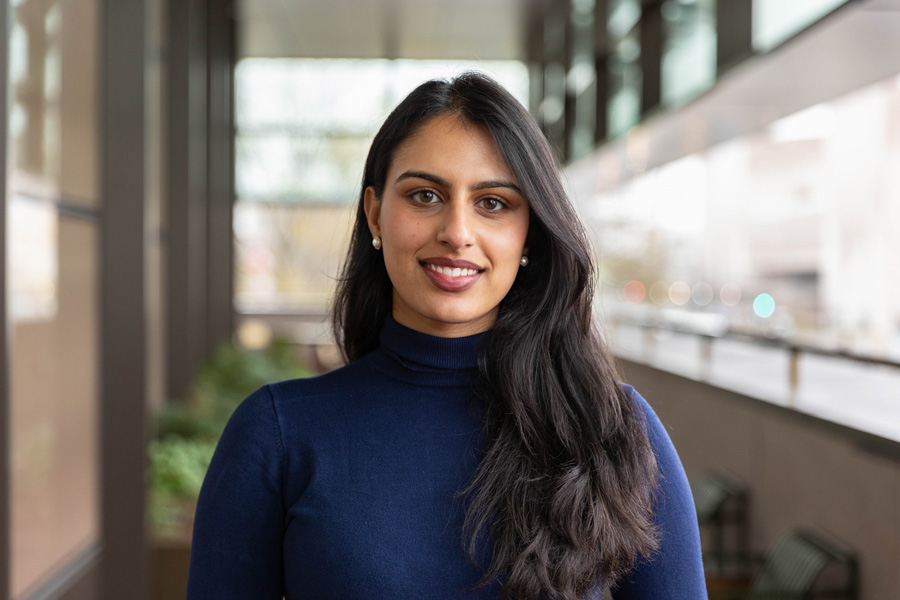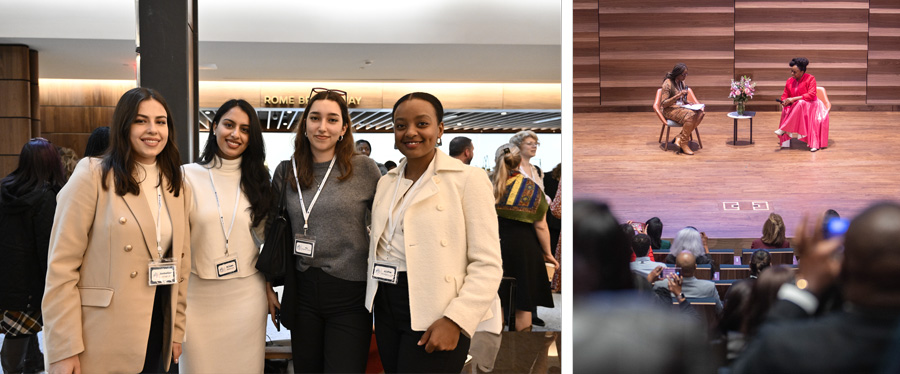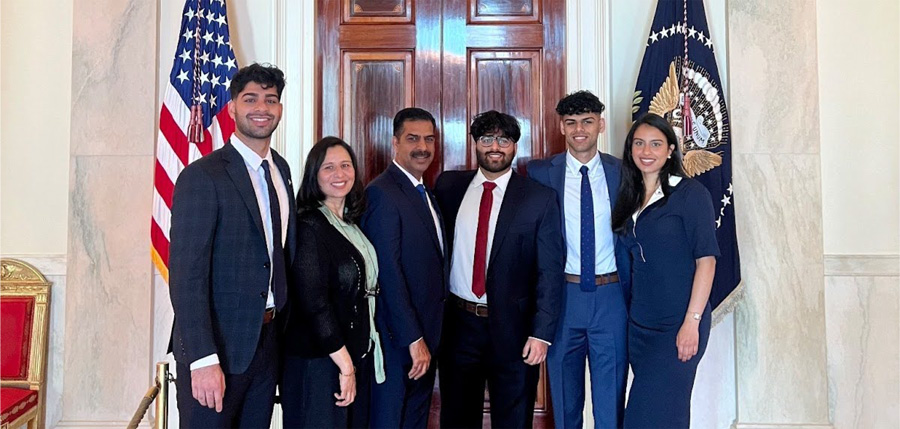The Profound Impact of a SAIS Education

Name: Nibba Ahmed
Home Country: United States
Degree: Master of Arts in International Relations (MAIR)
Before joining the Johns Hopkins School of Advanced International Studies (SAIS), what were you doing?
Prior to SAIS, I completed my Bachelor of Arts at the George Washington University’s Elliott School of International Affairs, where I obtained a degree in international relations and a minor in Arabic, concentrating in security policy. I also served in the White House on the Gender Policy Council working on issues of gender-based violence and global women’s rights, peace, and economic security.After much research, it was abundantly clear that Johns Hopkins SAIS was where I needed to be to reach my career aspirations.
What led you to Johns Hopkins SAIS?
During my undergraduate years, Washington, D.C. became a significant part of my academic and professional development. The city offers a myriad of opportunities that deeply enriched my understanding of international relations.I knew that choosing a graduate program would be a pivotal step in my career aspirations and SAIS stood out from the rest. It offered a comprehensive and rigorous education that promised to sharpen my focus and clarify my future goals. After much research, it was abundantly clear that Johns Hopkins SAIS was where I needed to be to reach my career aspirations.

Left: Nibba and fellow SAIS students gather in the Hopkins Bloomberg Center lobby ahead of the 2023 SAIS Women's International Leadership Summit. Right: Chimamanda Ngozi Adichie speaks with Vice Dean Chiedo Nwankwor.
What has been your favorite experience at SAIS?
My favorite experience at SAIS has been participating in the inaugural SAIS Women's International Leadership Summit in the fall of 2023. This landmark event profoundly resonated with me, reinforcing my commitment to championing the inclusion of women in our field. During the summit, I found myself engaging in meaningful dialogues with panelists and having the opportunity to connect with one of my favorite authors, Chimamanda Ngozi Adichie. The event highlighted the university's dedication to celebrating women's leadership.This encounter not only inspired me but also led me to become actively involved with the SAIS Global Women Lead group, where I have the honor of serving as co-conference chair. This role allows me to contribute to the shaping of spaces that uplift and recognize the vital contributions of women in international relations and leadership.
What is one piece of advice you would give to students in the process of choosing graduate schools?
It seems obvious, but think about where you actually want to be, geographically speaking. This perspective often gets lost in the application process, but it profoundly shaped my journey.Envisioning myself in D.C. was a driving force behind my decision-making process. With this mindset, I only applied to two graduate programs, prioritizing SAIS because it felt like the perfect fit for me in every sense. This doesn’t just simplify the application process, which is daunting in and of itself, but it also helps clarify where you will thrive in and outside of the classroom.
Looking back, I’m really grateful that I focused my efforts in this way; it made all the difference in shaping the path I’m on today.
What do you plan on pursuing after graduation?
In the coming years, I aspire to be deeply engaged in addressing international law issues, specifically at the nexus of gender crises. My focus will be on critical areas affecting women and gender minorities, including conflict, security, and economic empowerment. The path to achieving this—whether through pursuing a juris doctor after graduation or leveraging my degree in International Relations—remains open.However, the profound impact of my current academic pursuits, such as SAIS’ International Human Rights Law course, is undeniable. These experiences laid a robust foundation for my career, whether I embark on my passions through diplomatic means or through law. Most importantly, they have ensured that my zeal for gender reform not only remains at the forefront of my professional endeavors, but also serves as a guiding principle in my contribution to the field.

Nibba and her family on a visit to the White House.
Whose support has made your journey at SAIS possible and why?
Amidst the vast tapestry of individuals who have touched my life, the most profound influences trace back to my parents. Being raised as the sole daughter in an American-Pakistani family, alongside three brothers, indelibly shaped my identity and continues to sculpt who I am.My parents, in their wisdom and strength as immigrants in the United States, uplifted and empowered me at every turn. This is reflected in the respect and autonomy I was accorded within our home, as well as their unwavering support in my every endeavor.
Their journey, marked by resilience, was deeply intertwined with their commitment to nurturing a young girl amidst the lively chaos of three brothers. Not only did this commitment embolden me, but it also taught those around me the invaluable significance of empowerment.
If you are looking to learn more about what it's like to be a current student at Johns Hopkins SAIS, we encourage you to schedule a virtual appointment with one of our Admissions Fellows.
Enjoyed reading Nibba's experience? Learn more about our Master of Arts in International Relations.
Back to Student Stories